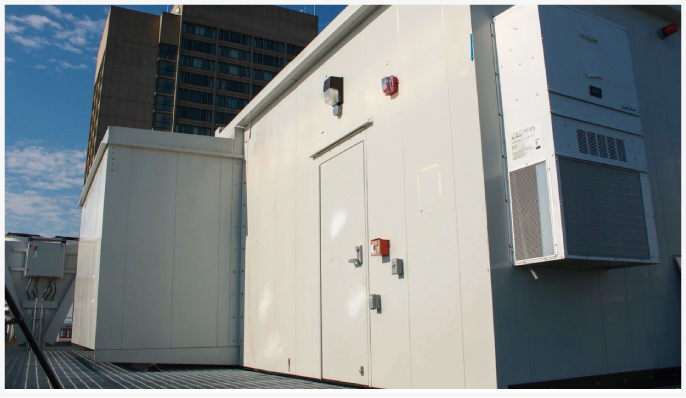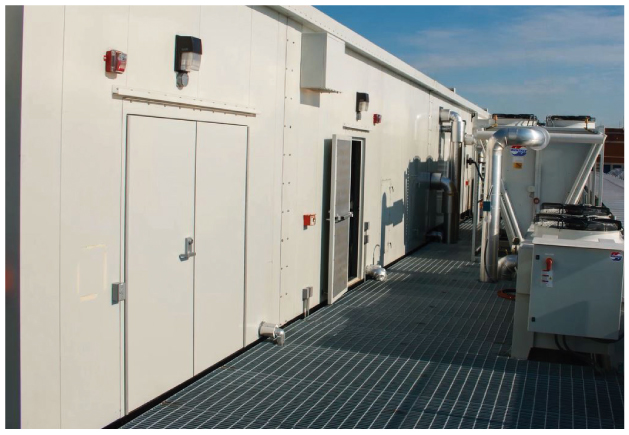HealthManagement, Volume 17 - Issue 5, 2017
How a Boston hospital is tackling energy use and lowering costs
An energy innovation is helping a key hospital in New England to save money and protect operations against outages.
A cogen facility is enabling Boston Medical Centre (BMC), one of the greenest hospitals in all of the USA , to produce much of its own electricity and heat.
This innovation is translating into sizable savings in energy costs, augmenting hospital resources allocated for patient care.
The 2-megawatt combined heat and power plant (cogen) is about the size of a tractor-trailer and runs on natural gas. Unlike traditional power plants that release excess heat into the atmosphere, cogen technology works by trapping and reusing the heat.
Energy consumption reduction
BMC's cogen plant supplies more than 41% of the hospital's electricity and has the capacity to meet 25% of peak electricity demand at any given time.
"BMC can make a strong case for being the greenest and most resilient hospital in Boston," said hospital CEO and President Kate Walsh. "For us, increasing efficiency and resiliency makes financial and operational sense. Cogen will save about $1.5 million in energy and heating costs, which are resources we can spend on patient care, instead of utility bills."
The power plant further boosts the hospital's "black start" capability. This simply means that if the electric grid goes down, the hospital can restart the cogen plant and heat and power its inpatient units on an "island" for months at a time, as long as it has a supply of natural gas.
Security against disasters
The cogen facility is safely located on the roof of the Yawkey Ambulatory Care Center, high above any potential floodwaters.
"We've learned lessons from Hurricane Katrina and Sandy, which devastated the healthcare infrastructure in their communities," explained Bob Biggio, Senior Vice President for Facilities and Support Services. "Hospitals that had cogen were able to stay open and care for patients, while those without cogen were forced to evacuate. As the largest safety-net hospital and biggest trauma centre in New England, we have an obligation to protect our patients in a natural disaster." Construction of the $15 million cogen facility was made possible by a $3.7 million grant from the Massachusetts Department of Energy Resources' Community Clean Energy Resiliency Initiative. The Boston Public Health Commission partnered with BMC in securing the grant.
Recognition
In addition to powering and heating much of the hospital, the cogen facility will also serve as a backup power source for city and state emergency communications.



"Projects like Boston Medical Centre's new combined heat and power plant are critical to ensuring that Massachusetts has a clean and reliable energy future," said Department of Energy Resources Commissioner Judith Judson. "We are proud to partner with BMC and the City of Boston to ensure that their facilities have the resiliency needed to provide the highest level of care to their patients regardless of extreme weather." By reusing the trapped heat for hot water, humidification and room temperature, BMC will lower costs by reducing its need for steam heat by an estimated 44, 000 pounds annually. Cogen will also reduce electric grid consumption by more than 16 million kilowatt hours a year.
The initiative has led to accolades. BMC is the recipient of three prestigious awards from Practice Greenhealth, the Top 25 Environmental Excellence Award, the highest honour Practice Greenhealth bestows on hospitals, as well as the Greening the OR Recognition Award and the Circle of Excellence award in the energy category.
Key Points
- The cogen facility is enabling Boston Medical Centre to
produce a large proportion of its own power
- The plant meets more than 41% of the hospital's electricity
needs and will save about $1.5 million in energy and heating costs
- The power plant supports the hospital's "black start"
capability enabling natural gas “island” powering of facility in event of loss
of power
- The cogen facility is located above potential floodwaters
and also serves as a backup power source for city and emergency communications
- Cogen will reduce electric grid consumption by more than 16
million kilowatt hours annually
- The move has seen BMC the recipient of three prestigious
awards for green initiatives















